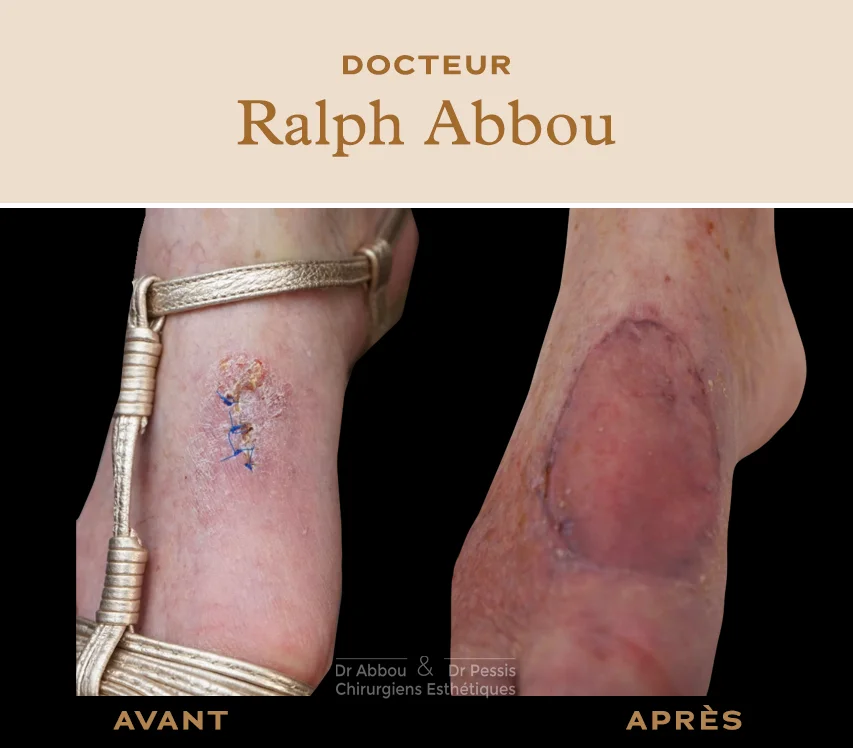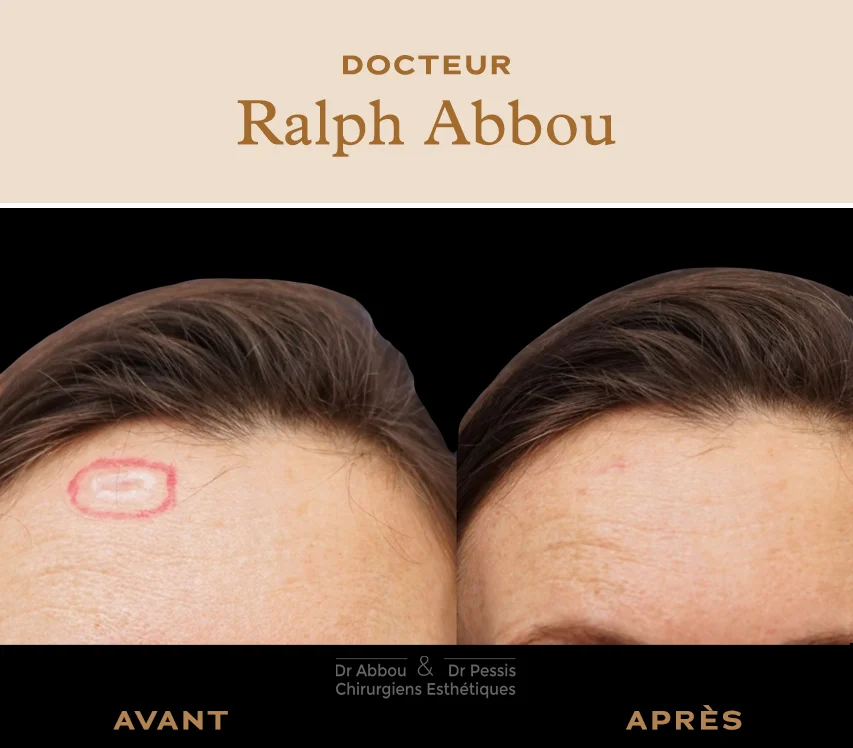Skin cancer surgery
Skin cancer surgery is a very common dermatological surgical procedure that allows for the management of skin lesions by surgically removing them, having them analyzed in the laboratory and reconstructing a loss of substance if necessary.
Dr. Ralph ABBOU and Dr. Rachel PESSIS are specialized in plastic reconstructive surgery and collaborate with the multidisciplinary consultation meeting of the Tenon Hospital in Paris to analyze cases that require it.
Before and after photos of skin cancer treatment
What is skin cancer surgery?
What are the symptoms of skin cancer?
rough, red, scaly or painful skin that does not heal
a flesh-colored or pale red papule or nodule that may also be peeling, itchy and painful
a new pigment spot, mole or birthmark with an irregular border or changing color
old pigment stain, mole or birthmark that changes color or shape, grows or bleeds.
What are the goals of skin cancer surgery?
- Surgical treatment of malignant skin tumors
- Anatomopathological analysis in the laboratory
- Surgical reconstruction to minimize aesthetic and functional consequences
- Medical consultation with your plastic surgeon
- Prescription of additional tests if necessary
Course of the intervention:
For malignant tumors, a biopsy is very frequently performed. The biopsy consists of removing a small “core” of tissue to determine the exact nature of the tumor and to determine its treatment. The result of the biopsy takes about ten days. Then, the complete removal of the lesion is scheduled. The removed tumor is sent for pathological analysis, which confirms that the entire tumor has been removed.
Your case will be presented at a PCR (multidisciplinary consultation meeting) attended by dermatologists, pathologists, oncologists and surgeons, who will decide on the best treatment for you.
Dr Rachel PESSIS and Dr Ralph ABBOU work with the RCP of the Tenon Hospital (APHP).
Reconstruction after skin tumor
When the lesion is located under the skin, the question does not arise because after removing the subcutaneous lesion, the skin is closed on itself.
If the removed skin lesion is small, the hole (the loss of substance) left by the removal of the lesion will be immediately sutured on itself. The discretion of the scar will be favored by the orientation of the incision in the axis of the natural folds of the skin and by an impeccable suture technique.
For larger lesions or lesions located near an area where the skin cannot be pulled back because of the risk of deforming it (nose, eye, etc.), we cannot perform a removal-closure procedure and we must use a reconstruction procedure.
Once we have the results of the anatomopathological analysis (about ten days), and we are sure that everything has been removed, we can use two main categories of reconstruction techniques
- The skin graft
- The flap
The principle of skin grafting is to take skin from an area of the body where there is sufficient laxity. This skin graft is then sutured to the loss of substance.
The principle of the flap is different. It consists of moving an area of skin adjacent to the loss of substance to cover it, using techniques of advancement, transposition and rotation. The advantage is that full thickness skin is provided with a very good final cosmetic result. The disadvantage is that the flap itself leaves an additional scar.These two techniques should be discussed with your surgeon.
Skin cancer surgery price Paris
| intervention | Price |
|---|---|
| skin cancer | From 300 € |
The questions most often asked by patients
Questions & Answers
What are the most common skin cancers ?
- Basal cell carcinoma
- Spino cellular carcinoma
- Melanoma
Avez vous aimé cet article ?
Cliquez sur les étoiles pour donner une note
Note moyenne 5 / 5. Nombre de votes : 62
Pas de votes pour le moment, soyez le premier à voter.






